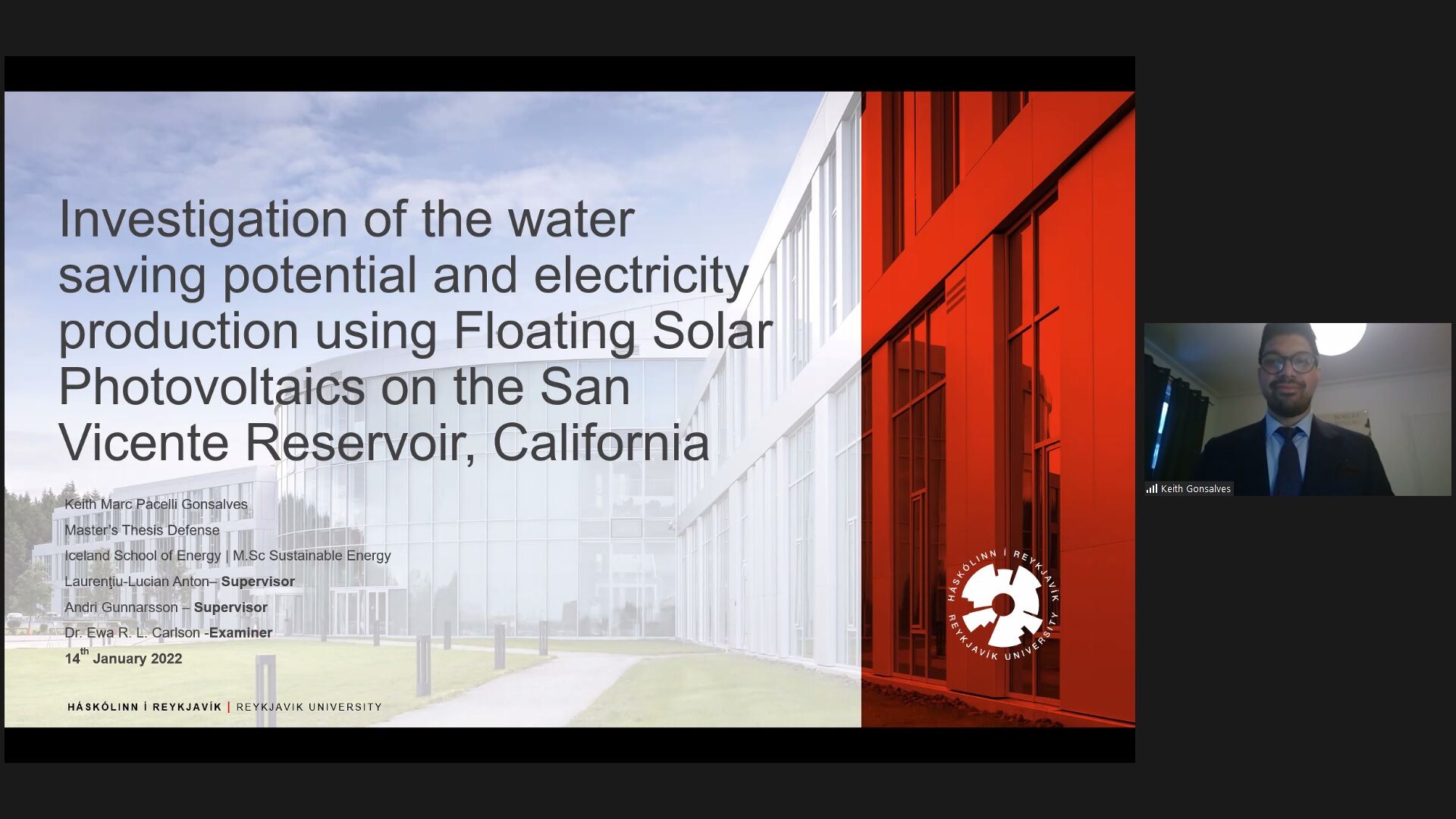MSc Thesis: Investigation of the water saving potential and electricity production using floating solar photovoltaics on the San Vicente Reservoir, California
REYKJAVIK, January 14 - MSc in Sustainable Energy candidate, Keith Marc Pacelli Gonsalves, successfully defended his master's thesis where he investigates water saving potential and electricity production using floating solar photovoltaics on the San Vicente Reservoir, California. Keith's work was supervised by Laurentiu Anton from Reykjavik University and Andri Gunnarsson , Manager of Hydrological Research at Landsvirkjun. Examination was conducted by Dr. Ewa R. L. Carlson from Reykjavik University.

Abstract:
Deployment of floating solar technologies has gained traction over the last few years. Regions facing drought and water scarcity in particular might benefit from such technologies, such as California and neighboring states. This study aimed to find the financial benefit of utilizing floating solar technology on a hydropower reservoir.
The Penman formula was used to create an evaporation model using temperature, wind, and irradiation data, which were imported from recorded meteorological stations. This model was implemented on MATLAB and used to quantify the water saving potential for an area of 100,000m2 for a proposed 10 MWp floating photovoltaic system on the San Vicente Reservoir in San Diego. A solar model was created with PVSyst, using synthetically generated temperature, wind, and irradiation data. The hourly production output was simulated over a project lifespan of 25 years and included standard degradation and losses.
Hourly (node) electricity prices from the California Independent System Operator (CAISO) were then used along with the hourly electricity production from PVSyst to estimate a yearly electricity revenue. Similarly, annual water savings from the evaporation model were used along with average water supply rates from the San Diego Public Utility Authority to calculate yearly water savings revenue. The evaporation model was validated against monthly evapotranspiration data (after conversion of the modeled evaporation rate into an evapotranspiration rate). The synthetically generated temperature was also validated by comparing it to recorded meteorological data.
The total CAPEX and OPEX of the project were estimated, and the project lifetime analysis showed a negative Net Present Value of $1.1m (USD). Sensitivity analyses were performed with discount rate, electricity pricing, and water pricing. Future studies could explore the tax credit and concessions as well as the potential of battery/pump storage to offset the price fluctuations during the course of a day. More accurate CAPEX and OPEX models may lead to a positive NPV.
Congratulations Keith on an excellent thesis defense!
